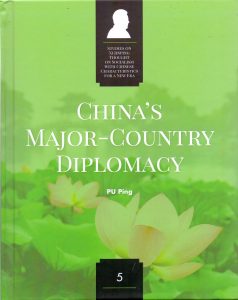
Date of Pub: 2021-06
ISBN: 978-981-4915-09-0
Author: PU Ping
About the Author
PU Ping is a professor at the School of International Studies at Renmin University of China. Her main research and teaching areas include international organizations and international relations. She is the author or co-author of several books and dozens of articles on these subjects.
About the Content
The Xi Jinping Thought on Socialism with Chinese Characteristics for a New Era was first announced during the 19th National Congress of the Communist Party of China (CPC) in October 2017 and subsequently written into the Party’s Constitution. Five months later in March 2018, the Thought was enshrined in the Constitution of the People’s Republic of China by China’s national legislature, the National People’s Congress. According to Chinese media, the Xi Jinping Thought epitomizes the CPC’s latest achievements in adapting Marxism to the Chinese context and encapsulates the practical experience and collective wisdom of the Party and the people. As a leading ideology, it will guide China’s pursuit of peace and development for at least the next decade, and will undoubtedly have an impact on the whole world given China’s current status as an economic power. Studies on Xi Jinping Thought on Socialism with Chinese Characteristics for a New Era consists of 10 books written by prominent scholars from Renmin University of China. In these books, the authors offer their interpretations of and insights on various aspects of the Thought, including its origin and significance, as well as its manifestations in Party building, economic development and reform, ecological civilization, education, diplomacy, state governance, rural revival, and poverty alleviation.
As China grows stronger and increases its global influence, the world is expecting it to play its due role as a major country and take on more international obligations. Under the guidance of Xi Jinping Thought on diplomacy, China has developed a distinctive approach to foreign relations befitting its global role, known as China’s major-country diplomacy. This approach aims not only to create an external environment conducive to the country’s own peaceful development and national rejuvenation, but also to promote global peace and common development in collaboration with other countries. This book examines the innovative diplomatic concepts, visions, and initiatives that the Chinese government has proposed to achieve these goals, such as building a new model of international relations and a community with a shared future for mankind, developing a global network of partnerships, reforming the global governance system, the principle of upholding justice while pursuing interests, and the Belt and Road Initiative.